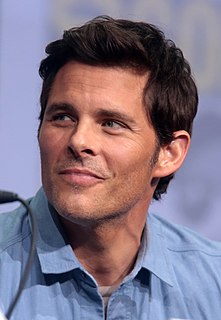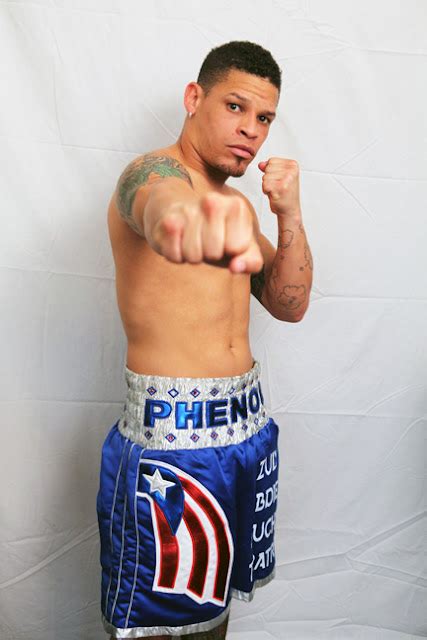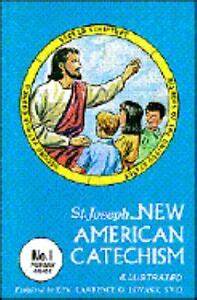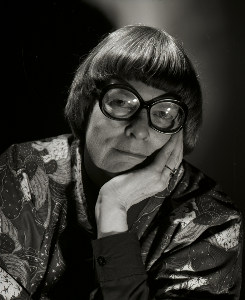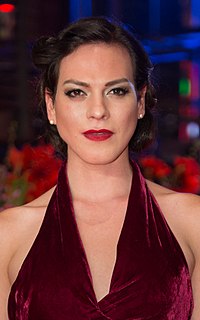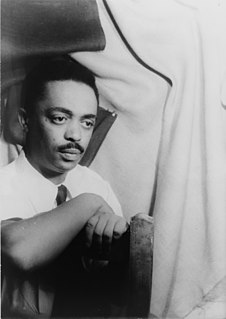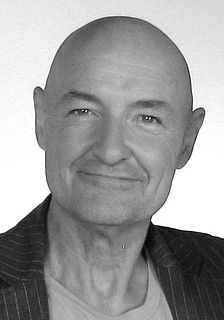A Quote by Joan Didion
I lost the conviction that lights would always turn green for me, the pleasant certainty that those rather passive virtues which had won me approval as a child automatically guaranteed me not only Phi Beta Kappa keys but happiness, honor, and the love of a good man; lost a certain touching faith in the totem power of good manners, clean hair, and a proven competence on the Stanford-Binet scale. To such doubtful amulets had my self-respect been pinned, and I faced myself that day with the non-plused apprehension of someone who has come across a vampire and has no crucifix at hand.
Quote Topics
Across
Always
Amulets
Apprehension
Approval
Automatically
Been
Beta
Certain
Certainty
Child
Clean
Come
Competence
Conviction
Day
Doubtful
Faced
Faith
Good
Good Man
Good Manners
Green
Guaranteed
Had
Hair
Hand
Happiness
Honor
Keys
Lights
Lost
Love
Man
Manners
Me
Myself
Only
Passive
Pinned
Pleasant
Power
Proven
Rather
Respect
Scale
Self
Self-Respect
Someone
Stanford
Those
Totem
Touching
Turn
Vampire
Virtues
Which
Would
Related Quotes
But something magical happened to me when I went to Reardan. Overnight I became a good player. I suppose it had something to do with confidence. I mean, I'd always been the lowest Indian on the reservation totem pole - I wasn't expected to be good so I wasn't. But in Reardan, my coach and the other players wanted me to be good. They needed me to be good. They expected me to be good. And so I became good. I wanted to live up to the expectations. I guess that's what it comes down to. The power of expectations. And as they expected more of me, I expected more of myself, and it just grew and grew.
In a way he made me think of a child doll, with briliant faintly red-brown glass eyes - a doll that had been found in an attic. I wanted to polish him with kisses, clean him up, make him evevn more radiant than he was. "That's what you always want," he said softly... "When you found me under Les Innocents," he said, "you wanted to bathe me with perfume and dress me in velvevt with great embroidered sleeves." "Yes," I said, "and comb your hair, your beautiful russet hair." My tone was angry. "You look good to me, you damnable little devil, good to embrace and good to love.
I have always been good at auditioning, but maybe because I had a good trick at the beginning. I would pretend that my agent gave me the wrong scene or lines. They would take pity on me and hand me the right scene. I would act like I had never seen this before - and then do pretty well considering I had already rehearsed it.
I came out as a gay as I have earned myself respect as an athlete. I have only lost 2 out of 22 professional fights. I knocked out some of my opponents in the first round. But I never really received respect as a person. That's something I had come to realize over the past few years. The end of my boxing career is no longer that far off, and it was time for me to make peace with myself. And there was a second reason for me to come out: I hoped it would make me a better boxer.
Love rejoices in good wherever it finds it; envy is pained by good, and the sight of the happiness of others hurts the eyes and the heart of the envious man. Love wishes to give; envy would rather receive. Love creates; envy destroys. Love builds up; envy pulls down. Love helps those in need, comforts the afflicted, and strives to turn all that is evil into good; envy would turn the little happiness to be found in this world into evil, sorrow, and pain.
I had studied Irish history. I had read speeches from the dock. I had tried to fuse the vivid past of my nation with the lost spaces of my childhood. I had learned the battles, the ballads, the defeats. It never occurred to me that eventually the power and insistence of a national tradition would offer me only a new way of not belonging.
It's not the length but the quality of life that matters to me. It has always been important to me to write one sentence at a time, to live every day as if it were my last and judge it in those terms, often badly, not because it lacked grand gesture or grand passion but because it failed in the daily virtues of self-discipline, kindness, and laughter. It is love, very ordinary, human love, and not fear, which is the good teacher and the wisest judge.
For me, personally, life in South Africa had come to an end. I had been lucky in some of the whites I had met. Meeting them had made a straight 'all-blacks-are-good, all-whites-are-bad' attitude impossible. But I had reached a point where the gestures of even my friends among the whites were suspect, so I had to go or be forever lost.
Within forty years of their arrival in the Plymouth colony, the first white settlers were afraid their children had lost the dedication and religious conviction of the founding generation. Ever since, Americans have looked to the next generation not only with love and solicitude but with a good measure of anxiety, worrying whether they themselves were good parents, fearful that their children would not turn out well.
In fact, I lost my dad at a young age and had to put myself through school. I didn't have a lot of the advantages Donald Trump had but I had the most important ones you can get, which are loving parents who cared about me and helped me develop a sense of self. But it certainly wasn't Donald Trump's doing.
I had lines inside me, a string of guiding lights. I had language. Fiction and poetry are doses, medicines. What they heal is the rupture reality makes on the imagination. I had been damaged, and a very important part of me had been destroyed - that was my reality, the facts of my life. But on the other side of the facts was who I could be, how I could feel. And as long as I had words for that, images for that, stories for that, then I wasn't lost.
The manly pride of the Romans, content with substantial power, had left to the vanity of the East the forms and ceremonies of ostentatious greatness. But when they lost even the semblance of those virtues which were derived from their ancient freedom, the simplicity of Roman manners was insensibly corrupted by the stately affectation of the courts of Asia.



